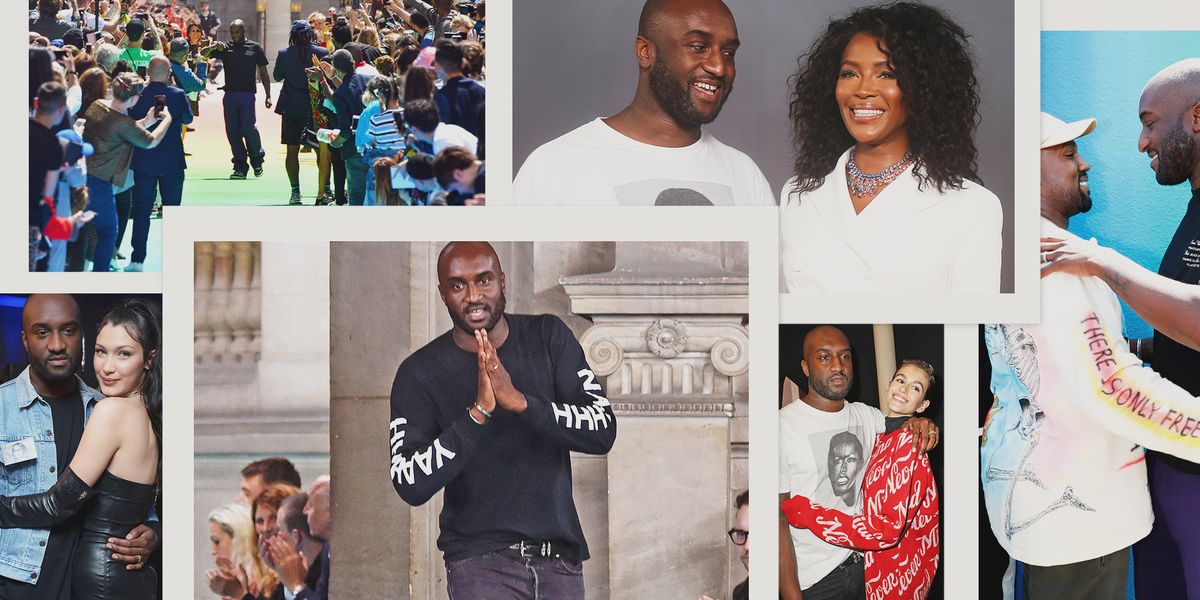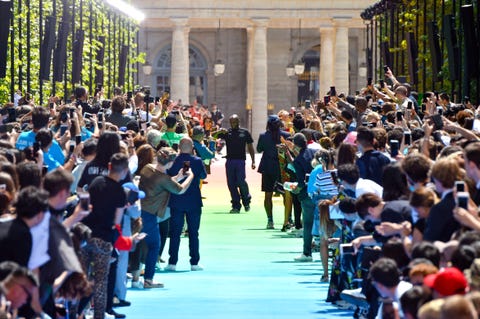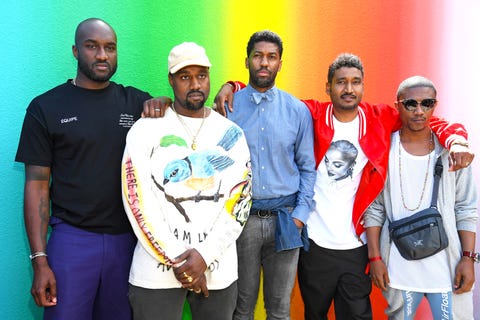Style Points is a weekly column about how fashion intersects with the wider world.
Back in the pre-Instagram days of 2009, the street-style photographer Tommy Ton snapped a photo of Virgil Abloh, Kanye West, and a group of their friends outside Paris Fashion Week. Dressed to the nines, they all looked like PFW habitués, but as Abloh later recalled, they couldn’t even get into a Louis Vuitton show at the time.
Almost a decade after that, that same crew would reunite at Abloh’s 2018 debut as Louis Vuitton’s artistic director of menswear, an appointment that made him the first African-American to hold that position at a French luxury brand. The symbolism was almost too on the nose: he’d gone from peacocking outside a show venue to unveiling his vision inside it. The kids hanging around the show entrance had become the ultimate insiders, and Abloh wanted to help the next generation find its way, too. He was a lifeline for young Black creatives in particular, mentoring designers like Samuel Ross of A-COLD-WALL* and creating a scholarship program for Black fashion students last year.
While many people who break down fashion’s gate focus on bolting it shut to new entrants, Abloh wanted everyone to feel like they were sitting front row. He invited 3,000 students to attend that aforementioned Vuitton show. As he told Women’s Wear Daily then, “I’m all about democracy. If some kid shows up, flew from New Jersey to just be around, let’s get him a seat.” His collection included some longtime friends as models, wending their way down his The Wiz-inspired runway. “You can do it too,” he posted on Instagram at the time, a message that might boil down to his personal philosophy.
That kind of generosity is rare in this industry, but the designer, who tragically passed away yesterday at only 41, found his way into it through scrappier means than most. A Midwestern kid of Ghanian immigrant parents, he didn’t come up through the traditional channels, namely fashion school followed by an apprenticeship at a brand. Instead, he did things his way. At his first label, Pyrex Vision, he screen-printed onto dead stock Ralph Lauren Rugby pieces, engaging in the kind of upcycling and re-appropriating that now feels commonplace but at the time was still controversial. After founding his Dadaist, quote-happy brand Off-White in 2013, he threw himself into unlikely collaborations with everyone from Ikea to Evian and referenced inspirations like Steve Jobs, Mies van der Rohe and Michael Jordan—blurring the boundaries between what was and wasn’t “fashion.” Maybe everything could be fashion?
When I interviewed him for our September issue last year, he told me he always remained mindful of “the real world.” After all, “that’s what I based my fashion career on. The everyday person who can’t afford to spend $60 for a T-shirt. That’s also the fashion industry.” In that same interview, he also said had no plans to slow down. I did not know at that time that he was privately battling a rare form of cancer. We talked about the changing tides of fashion amid the pandemic and how he was navigating them, and how much we both missed clocking people’s fashion statements out in the world. In that interview, he remained confident that disruption would come from those who had once been like him, an enthusiastic newbie trying to talk his way into a show: “The younger generation has the exact answer. It’s always the intern in the office who has the good ideas.”
Even though he’d achieved so much at barely 40, he didn’t seem to consider himself part of the Establishment, somewhat heartbreakingly so. “In my mind, I haven’t done any work yet,” he said then. “I’ve just sort of made a case for why my point of view is valid.” Those who looked up to him would argue he did far more than that.
This content is created and maintained by a third party, and imported onto this page to help users provide their email addresses. You may be able to find more information about this and similar content at piano.io



